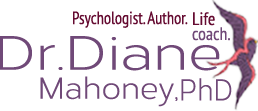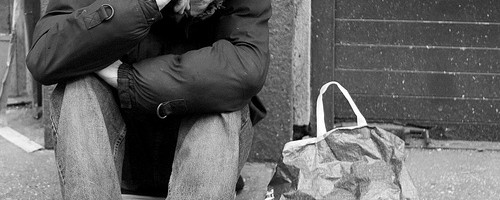With the Holidays right around the bend, I thought it might be a useful time to think about our behavior rather than our usual preoccupation with gifts, holiday parties, decorations, and such. The next month is known to be one of the most stressful times for the whole year! In fact, my husband quoted to me yesterday from a magazine that Christmas day, noted for all things religious and cheerful, is also the day of the year when most heart attacks occur! So as I pondered the blizzard of events into which I head for this next month, I thought about a pledge I would make to myself to get through it. I know that if I follow this Holiday prescription, I will sail through with less stress and greater satisfaction and contentment. I thought this holiday challenge would create a great blog idea for this time of year. So here goes my invitation and holiday gift to all my readers. Will you join me? I was just wondering…….
H Is for Happiness for this sparkling time of year. Even when stressed to the max, I pledge to stay positive and try to find the joy around me.
O Is for Optimism, the ability to see the glass as half full rather than half empty. When things appear bleak as the gray winter sky, I promise to watch for a ray of light.
L Is for Loving, which I will try to demonstrate through my personal interactions. I will also try to love each moment as I experience it.
I Is for Introspection, a necessary practice in order to encourage personal growth.
D Is for Dependability, a trait to be demonstrated through responsible action for myself and others.
A Is for Accessibility, the ability to be emotionally present. While it is easy to do for my work, it is more challenging to demonstrate consistently with one’s family and friends.
Y Is for remaining Young at Heart, to continue to see the world filled with awe through the eyes of a child.
G Is for generosity, the ability to be kind and giving to others and also to oneself. This is a perfect season to practice this attribute.
R Is for Responsibility, the ability to be reliable to others, but most importantly, to be able to trust myself to make the right judgments and decisions, those which will enhance my growth, not hinder it.
E Is for Empathy, the practice of being able to relate in a sincere manner to another’s feelings. This makes us more able to see all sides of a situation.
E Is to practice being Easy Going, a difficult challenge for an intense perfectionist like me. I promise to try not to worry about unfinished business.
T Is for Togetherness, which I vow to promote within my family. There are always many opportunities within families to derail this, but I promise it won’t be from me.
I Is for Inspiration, which I will try to provide to those in need.
N Is for the practice of being Non-judgmental. I have learned through my years as a therapist that everyone’s story explains why they are the way they are, and if you walked in their shoes, you most likely would see things in a similar way.
G Is for Gratefulness, during this season and every day. Practiced gratitude enhances happiness.
S Is for the pledge to Silence negativity. I pledge to enjoy this season as a beautiful gift to myself!
I invite you to join me in my pledge for this often difficult season. Nurture yourself by following the prescription in my Holiday Greeting to you. Don’t make yourself one of those Holiday heart attack statistics! Join with me in gifting yourself with happiness, optimism, love, introspection, dependability, accessibility, youngness of heart, generosity, responsibility, easy-goingness, empathy, togetherness, inspiration, non-judgmentalness, and gratefulness. As you enjoy these gifts to yourself, you are also gifting those around you as they enjoy the results of your efforts. Toss your negativity to the Grinch so that you can greet this season with a Grin. Can you, can you, can you do it? Will you join me? I was just wondering……….







